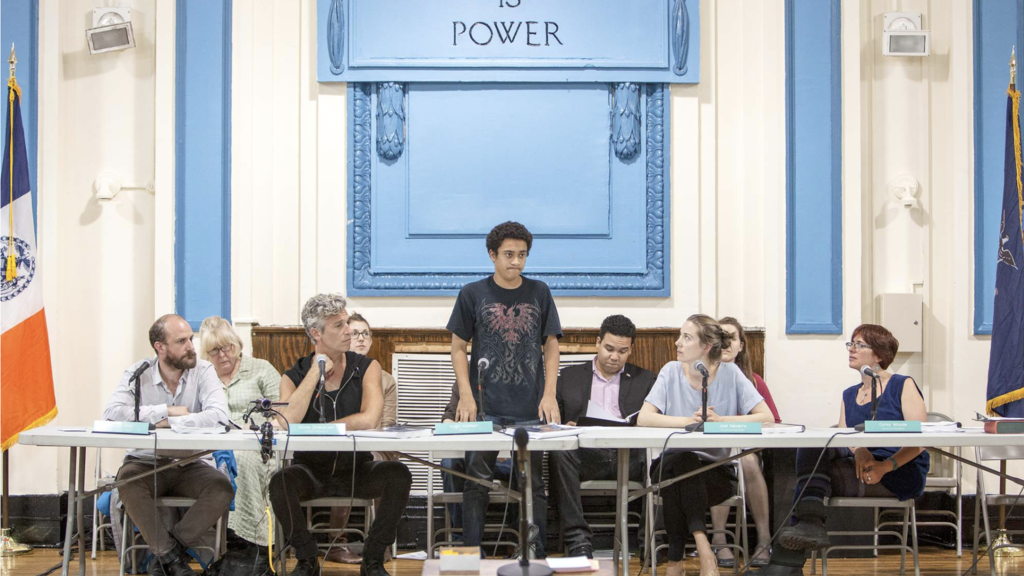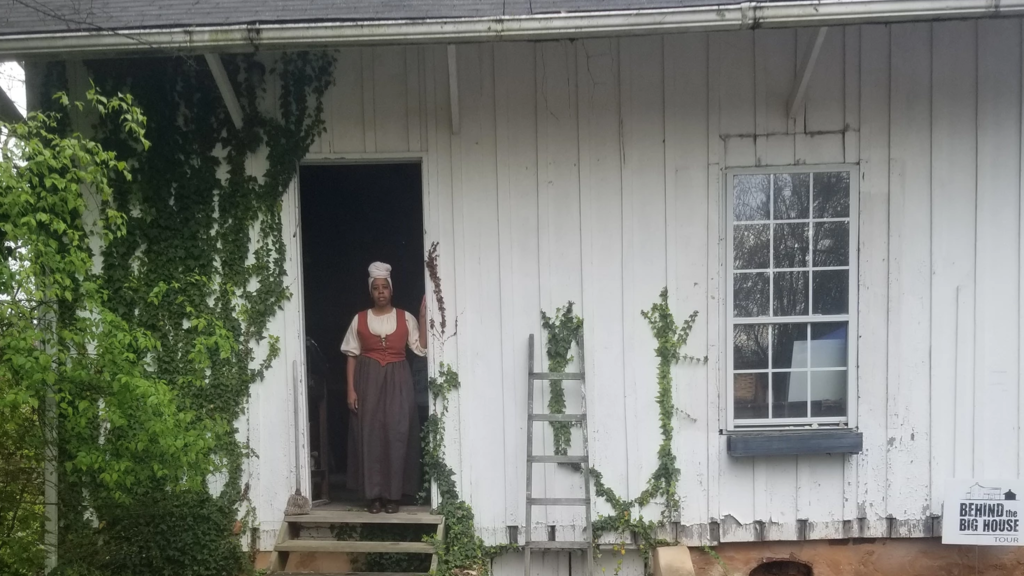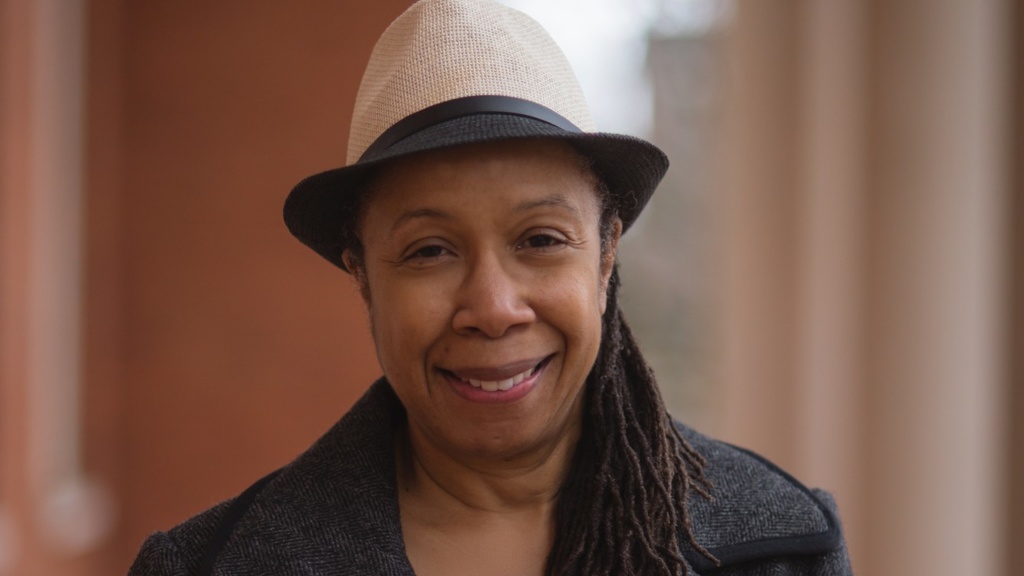
The City We Make Together — New book explores civic engagement
Wednesday, September 28, 2022
You walk into a space for a performance—not a theater, per se, but a gym or a ballroom—and find two rows of chairs with an aisle down the middle. Up front, a long table is set with name tags, microphones, and a folder in front of each space. Cameras are trained on the table, and large monitors on either side of the room broadcast what they capture along with captions. A microphone is positioned toward the front of what could be called the audience side of the room, while an American flag is posted behind the table.
This is the set of City Council Meeting, a performance that occurred in five U.S. cities (Houston, San Francisco, New York City, Keene, and Tempe) in the mid-aughts. It is the focus of a new book, The City We Make Together: City Council Meeting’s Primer for Participation in the Humanities and Public Life series, a collaboration between the Obermann Center and the University of Iowa Press. Written by two of the core theater makers behind the piece, Mallory Catlett and Aaron Landsman, the book also serves as a prelude and additional tool for a curriculum that is being created as an extension of the production.

Scholar, Descendant, Collaborator: Jodi Skipper's new book explores slave dwelling project
Sunday, April 17, 2022
The words "slavery" and "tourism" don’t seem like they belong anywhere near each other. But a growing number of Americans of all races are eager to better understand our country’s complicated history by visiting places where difficult and often darkly violent events occurred. Ensuring that we, the touring populace, receive complete stories when we arrive at these spaces, a network of historians, anthropologists, and community activists are working against time to save the material remnants of the lived experience of enslaved people.
Among them is Jodi Skipper, a University of Mississippi professor of anthropology and southern studies. For the past decade, she has used tools as an archaeologist, scholar, teacher, and community member to widen and deepen the shared narratives of historic sites in the U.S. south. She has shared these experiences in a new book, Behind the Big House: Reconciling Slavery, Race, and Heritage in the U.S. South, just published by the University of Iowa Press.

Book Talk with Rhondda Robinson Thomas, author of Call My Name, Clemson: Documenting the Black Experience in an American University Community , Nov. 30
Wednesday, November 18, 2020
In the summer of 2007, a young scholar named Rhondda Robinson Thomas attended a new faculty orientation at Clemson University. Thomas was unfamiliar with Clemson, which is a public, land-grant research university in South Carolina, and was surprised to learn that the campus was built on the site of American statesman John C. Calhoun and Floride Calhoun’s Fort Hill Plantation. In fact, their home...